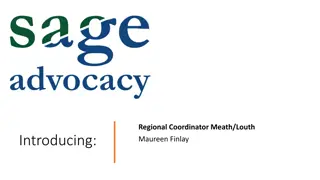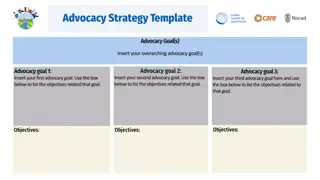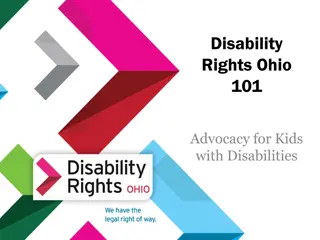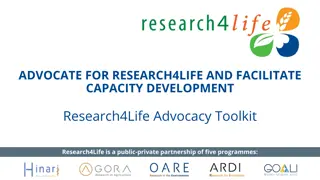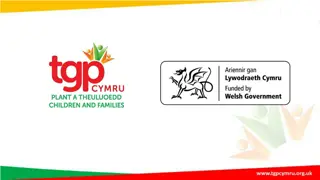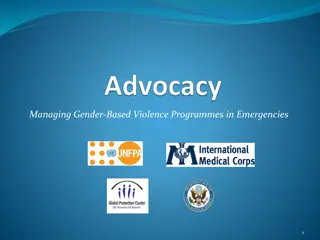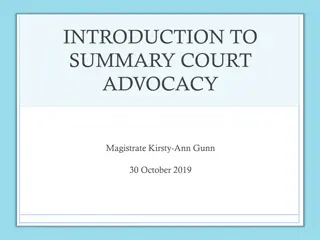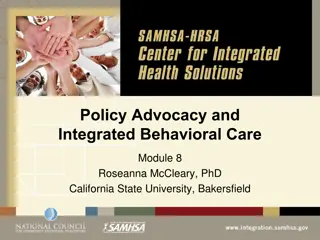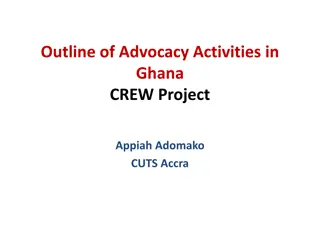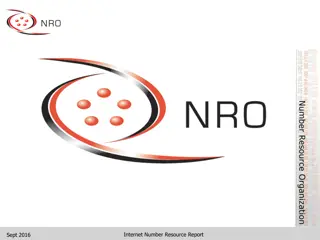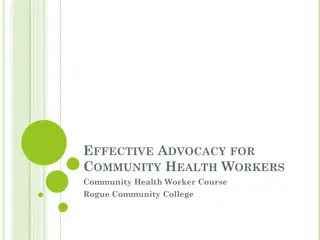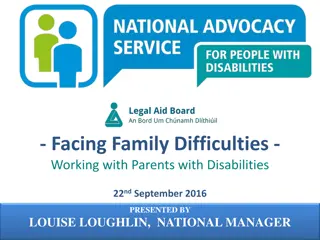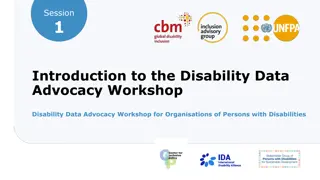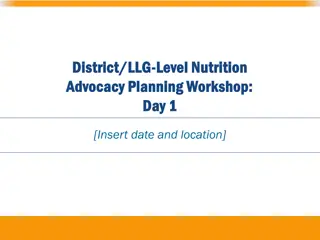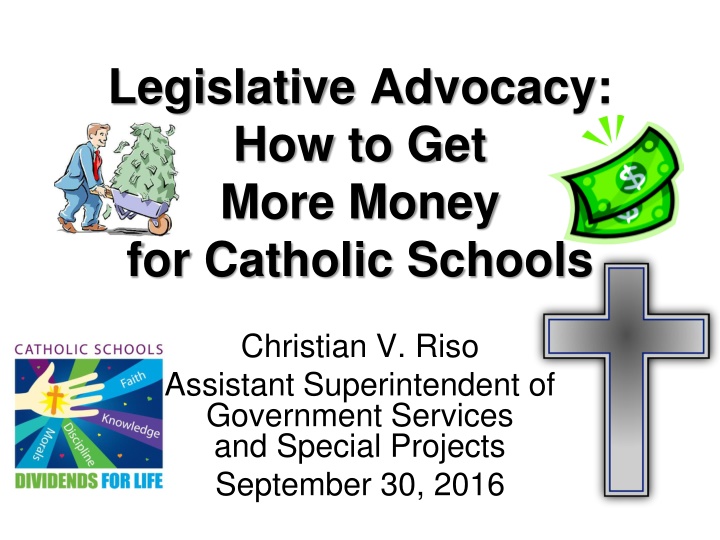
Empowering Catholic Schools: Advocacy for Increased Funding Opportunities
Explore strategies and avenues for Catholic schools to access additional funding through legislative advocacy, grants, and equitable services provided by public school districts. Learn about the availability of state and federal benefits, materials and services that can be secured, and current funding sources including reimbursement programs and grant opportunities.
Download Presentation

Please find below an Image/Link to download the presentation.
The content on the website is provided AS IS for your information and personal use only. It may not be sold, licensed, or shared on other websites without obtaining consent from the author. If you encounter any issues during the download, it is possible that the publisher has removed the file from their server.
You are allowed to download the files provided on this website for personal or commercial use, subject to the condition that they are used lawfully. All files are the property of their respective owners.
The content on the website is provided AS IS for your information and personal use only. It may not be sold, licensed, or shared on other websites without obtaining consent from the author.
E N D
Presentation Transcript
Legislative Advocacy: How to Get More Money for Catholic Schools Christian V. Riso Assistant Superintendent of Government Services and Special Projects September 30, 2016
What will we discuss today? What funds are currently available for my school? State Funding Federal Funding Grants What funds could be available for my school? What is advocacy? How can I advocate for my school?
Can Catholic Schools Receive State or Federal Funds? Although we cannot received State or Federal Funding directly, Catholic Schools can, upon request, receive State/Federal benefits via: 1. Equitable Services provided by Public School Districts 2. Reimbursement for performing State Mandates. 3. Grants, in some cases
Equitable Services Schools can receive the following Materials on loan from the Public School Districts: 1. Textbooks - $58.25 per student 2. Computer Hardware Amount varies a) Smart Schools Bond Funds, where applicable, up to $250 per student 3. Computer Software - $14.98 per student 4. Library Materials - $6.25 per student
Equitable Services Schools can receive the following Services provided by the Public School Districts: 1. Transportation 2. Special Education Services (IEP) 3. Title I ELA and Math Intervention 4. Title IIa Professional Development 5. Title III English Language Learners (ELL) 6. Nursing Services 7. UPK Funding Where available 8. AIS For Professional Development only 9. Home Instruction
Show Me the Money! Current sources of Funding in our Catholic Schools. Most of these programs are Reimbursement school must pay out first. 1. Mandated Services Reimbursement a) Funds for taking Attendance, administering NYS tests, and other minor Mandates. 2. Comprehensive Attendance Policy (CAP) a) Writing and implementing your schools CAP. 3. National School Breakfast & Lunch Prog. 4. School Safety Equipment Funding (NPSE)
Grant Opportunities Current sources of Funding for our Catholic Schools. These programs are often public school grants our schools can participate in: 1. 21stCentury Community Learning Centers a. http://www.p12.nysed.gov/sss/21stCCLC/ 2. Learning Technology Grant Program (LTG) a. edtech@mail.nysed.gov 3. Private Grants These are out there but often focus on public schools only.
What Funds or Services Could Be Available? 1. Scholarships Paid by for by Donations supported by Education Tax Credits 2. Increased (Full) Reimbursement for Mandated Services and CAP a. Including fair application of the funding formula 3. AIS Funding for PD Delayed 3 years 4. Full-Time Nursing in Every Catholic School 5. Expanded Transportation to our Schools 6. Funds for New Teacher Mentoring
The Problem 1. Although Catholic Schools are eligible for all of the funding described on the previous pages, the implementation of these programs often makes it difficult for our schools to see the intended benefits. 2. When new programs/funds are made available as new laws are passed, Catholic Schools are often left out when new education funding is created.
So What Can We Do About It? We must ADVOCATE for our Catholic Schools! Who must advocate? 1. Principals 2. School Staff 3. Parents 4. Board Members 5. Students 6. Community Members/Parishioners
Some Terms: What is advocacy? The act or process of pleading or arguing in favor of something, such as a cause, idea, proposal, or policy. Active support. Who is an advocate then? A person who speaks or writes publicly in support or defense of a person, cause, etc.
So as an Advocate of Catholic Education, what issues should we be focused on? We should work to protect, preserve and expand the rights and guarantee that children in Catholic schools are provided the public services to which they are entitled to the fullest extent of current law and expand those rights so that more children have the opportunity to attend Catholic schools.
How do I (Assistant Superintendent of Government Services) advocate for your schools? Represent the Diocese of Buffalo s Department of Catholic Schools on the State Coordinating Committee of the NYS Catholic Conference. Travel to Albany to meet with legislators (lobby) and support the NYS Catholic Conference Director of Education s efforts there. Establish and maintain a list of Catholic Action Network School Coordinators. Communicate with the group via email with regard to action requested on advocacy related to education. Provide each legislator with demographic information regarding the number of Catholic School students in their district and the demographics of those students. Arrange for meetings at each legislator s local office. Possible attendees would be principals from schools in each district, parents, pastors, teachers and board members. Encourage Voter Registration by all Catholics and assist schools with Voter Registration Drives.
Why should you advocate for your school? Remember that your Catholic School is a part of the NYS Education System. The rules and policies made at NYSED can affect many different aspects of how we run our schools. The funding decisions they make in relation to Non-public schools can have a huge impact on the sustainability of our schools. With that in mind, make sure your legislators know you support Catholic Schools as an important part of our state-wide system of schools.
How can you advocate for your school? 1. Go to the NYS Catholic Conference Website and look at the resources available there: www.nyscatholic.org Click on Take Action to go to look up your legislators, write your legislators, research important legislation, find election information and link to local media outlets. 2. Join the Catholic Action Network to receive email alerts on issues important to you. These alerts will give you an easy link to send a letter or email to your legislator on the issue at hand along with a draft letter for you to edit. The link is below: http://www.nyscatholic.org/nys-catholic-conference- action-center/?vvsrc=%2fRegister
How can you advocate for your school? 3.Interact with your legislators on issues related to Catholic (Non-public) education and ask them to support legislation that ensures an equitable education for Catholic School students. This type of lobbying is allowed under federal tax laws. All advocacy should meet the federal guidelines related to 501(c)(3) status so as to ensure both your school and the Diocese of Buffalo do not jeopardize their tax- exempt status (https://www.irs.gov/pub/irs- pdf/p4221pc.pdf?_ga=1.95139612.1051601386.1473362001). All employees of Catholic Schools are guaranteed free speech under the first amendment when acting outside of their professional role. Once they are identified as speaking or writing as an employee of the school or Diocese of Buffalo their statements in support of against a specific candidate for election can affect tax-exempt status. These restrictions apply only to actions attributable to the 501(c)(3) organization, not to actions attributable to individuals. The Internal Revenue Service has said that partisan comments by leaders of such organizations in official organization publications or at official functions are attributable to the organization and thus forbidden by the rules. But, outside that context, leaders may become involved in campaigns and endorse candidates when they "do not in any way utilize the organization's financial resources, facilities, or personnel, and clearly and unambiguously indicate that the actions taken or the statements made are those of the individuals and not of the organization."
How can you advocate for your school? 4. Run a Voter Registration Drive. 5. Write Letters and Email to your legislators about advocacy issues. Legislators assume 1 Letter represents 10 voters Legislators assume 1 Email represents 5 voters 5. Make Phone calls to your legislators about advocacy issues. 6. Meet with your legislators about advocacy issues. 7. Setup letter-writing campaigns for your school about advocacy issues.
How can you advocate for your school? 8. Invite legislators and political candidates to school events so they can learn first-hand about your school and your mission do so equitably so as to not show support for one candidate over another Be very careful about inviting a politician to speak as it could jeopardize your 501(c)(3) status-follow the federal guidelines carefully. See link above in Section 1.c.i.) 9. Dedicate time at Advisory Board meetings for the discussion of advocacy efforts.
How can you advocate for your school? 10. Consider drafting advocacy language for your board to emphasize in the current school year or develop a long-range advocacy plan. Here is an example from one school board (https://www.ecsd.net/BoardofTrustees/overview/catholic_adv ocacy/Pages/default.aspx): Each year the Board of Trustees focuses on specific topics about advocacy with Catholicity being the overarching theme in all communications and actions. The Board will continue in its role of ensuring the preservation of Catholic education and increasing the awareness of the uniqueness and value of Catholic education to families. In addition, the Board of Trustees will establish new relationships and nurture existing relationships with elected officials at various levels of government, with Catholic stakeholders, and with other education stakeholders. In this example, the Board goes on to identify specific areas of focus related to advocacy: Board Communication, Special Education, and Transportation Services. Other areas of focus could be Education Tax Credits, Voter Registration, Mandated Services Aid, Textbook Aid and many other areas.
How can you advocate for your school? 11. Circulate Petitions Not a very effective way to get a message across unless it supports an already established advocacy goal being presented using other methods 12. Stage demonstrations This method is often used to embarrass a politician for his/her stance on a particular issue by trying to rally support for the alternative. Because of the tendency to alienate a politician from your cause, this method should be carefully thought out before being decided upon.
How can you advocate for your school? 13. Act as a booster for your school in the community Make sure you always speak positively about your school when in the community, even among friends. Although you may think of Advertising and PR as serving a different purpose, it also can support advocacy messages. Use conversations about school and education in general as a way to spread the word about the importance of Catholic Schools to our Educational System, possible school choice legislation and the need for equitable funding. Your opinions on these issues, when repeated enough, can become opinions of others if your arguments are logical.
How can you advocate for your school? 14. Speak passionately about advocacy issues 15. Follow Social Media Outlets focused on Catholic Advocacy and School Choice a. Facebook: https://www.facebook.com/christian.riso.14 b. Twitter: 1. https://twitter.com/ChristianRiso 2. https://twitter.com/catholics_count 3. https://twitter.com/InvestInEdNY 4. https://twitter.com/capenet Council for American Private Education
Moving Forward 1. What advocacy issues are most important to your school? 2. What type of advocacy has my school attempted in the past 5 years? 3. What three methods of advocacy do you believe have the best chance of being successfully implemented and sustained at my school?
Thank you! Please direct any questions or comments you have about school funding or advocacy to: Christian Riso Assistant Superintendent of Government Services and Special Projects (716) 847-5511 criso@buffalodiocese.org

